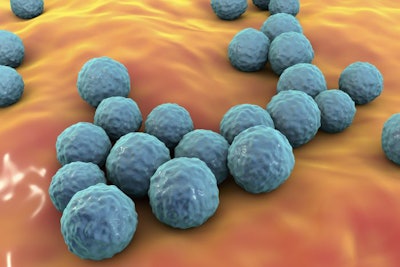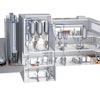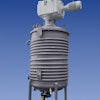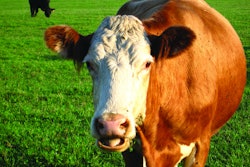
Originally published September 27, 2020
Like a happy family in Anna Karenina, one pet biotechnology company found evidence that all healthy dog or cat microbiomes may be alike, or at least similar.
A wide array of microbes dwell in the crevices of dogs’ and cats’ intestines, forming complex communities called the microbiome. When it’s working well, the pet microbiome helps with digestion and influences a wide array of seemingly unrelated aspects of pet health. When it isn’t, dogs and cats may suffer inflammatory bowel diseases, inefficient digestion or other problems.
To understand what makes up a healthy pet gut microbiome, researchers with AnimalBiome analyzed stool samples from more than 4,000 dogs and cats over five years. Pet biotechnology company AnimalBiome’s primary business is the sale of pet gut microbiome supplements and the analysis of pets’ gut microbe communities.
In their analysis of thousands of samples, the researchers identified certain bacterial groups that made up a core healthy dog or cat gut microbiome. In dogs, 15 genera made up the core, while healthy cat guts hosted 17. AnimalBiome presented the results of the five-year research project at the ACVIM Forum 2020 in June.
Of the dog microbiome core group, varieties of Blautia, Bacteroides, Fusobacterium, and Sutterella were the most frequent. Healthy cat microbiomes held many of the same bacteria groups, along with others, including Blautia, Bacteroides, Collinsella, Sutterella and Lachnoclostridium.
“Defining the core healthy microbiome provides an important frame of reference that is useful for both pet food formulators as well as veterinary medicine,” Holly Ganz, PhD, chief science officer and co-founder of AnimalBiome, said. “Diet is a major factor influencing the composition of bacteria in the gut microbiome, and nutrition studies show that members of the core microbiome in healthy dogs and cats respond in a predictable manner to dietary changes. We often see pets that would benefit from increased protein, decreased simple carbohydrates, and increased amounts and diversity of fiber in the diet.”
Digestive health in dogs and cats
Like awareness of other aspects of nutrition, the importance of the microbial community living inside pet’s intestines and other organs has grown in both the human and pet food worlds. However, the complexity of the microbiome, not to mention its location, makes it difficult to observe and understand.
“Digestive health can be difficult to assess in pets,” she said. “Pet owners have to rely on nonverbal cues, including activity levels, eating habits, the frequency and quality of their pet’s poop, as well as vomiting. We have found that because most pet owners regularly care for their pets, they are aware when their pets are experiencing diarrhea, constipation, or vomiting. Many are looking for new approaches to help them better support their pet’s health. And in response to growing awareness of the connection between nutrition and health, pet owners are becoming more committed to feeding higher quality diets to their pets.

















